Going through a divorce is certainly anything but easy, be it for a man or a woman. Regardless of the person’s gender, a divorce, or at times even a break up after a long-term relationship, can be hard. And figuring out how to cope with divorce as a man with or without kids can be doubly difficult because men often struggle to acknowledge and feel the full extent of intense emotions. Apart from the emotional toll, the financial strain of a divorce topped with child support and legal services can be crippling.
Having your whole life turned upside down can be a debilitating experience. Men’s health takes a massive toll too. However, it’s possible to ride out this storm without being emotionally and psychologically broken. If you see yourself as a broken divorced man or are struggling to come to terms with the possibility of your marriage ending, we’re here to hold your hand through this challenging journey. Let’s delve into the answers to how to deal with divorce as a man, with insights from psychotherapist Gopa Khan (Masters in Counseling Psychology, M.Ed), who specializes in marriage & family counseling.
What Are The Emotions Of A Man Who Is Going Through A Divorce?
Table of Contents
The emotions of a man going through divorce can feel like being on a roller-coaster ride that tears through your gut and leaves your heart beating in your mouth. When asked how divorce changes a man, Gopa says, “Anger and disappointment are among the foremost emotions of a man going through a divorce. You feel like a failure. This is followed by a lack of confidence and low productivity. No matter what the reason for divorce is, there is always a feeling that everything has gone down the drain in his life. They feel a hollowness inside akin to an empty apartment.”
Divorce is one of the most stressful events a person could go through, and like all tragic life events, a broken marriage induces grief. So before we get to how to cope with divorce as a man, let us take a glance at how grief basically works. The process that such a setback unfolds is called a grief cycle. It is loosely classified into the following phases:
1. Denial
Firstly, when such a devastating event occurs, the first response to it is denial. It is the mind’s way of saving itself from the shock. In this phase, we just don’t acknowledge the trauma. We avoid getting deeper into the issue because, let’s face it, it is a tough pill to swallow. It is like us closing our eyes hoping that it’ll make us invisible. This instinct basically saves us from that instant shock and allows us to gradually come to terms with the adversary.
Related Reading: Divorce Is About Letting Go And Moving On
2. Anger
“A man going through a divorce feels the exact same things that a woman does and goes through the same emotions more or less. Most of the male clients who come to me after divorce feel confused, withdrawn and very angry, feeling ashamed. They are in a lot of pain and feel like a failure. Men also feel very lonely after divorce,” says Gopa.
As the gravity of the situation sinks in, our next response is anger. We load up the blame gun and just fire away shots at everything and everyone. Some become petty, while some indulge in wallowing. When it comes to learning how to negate this raging storm, Gopa’s advice is not to get involved in practices like binge drinking or to jump into a rebound relationship. Yes, your emotions can be overwhelming, but there are better ways to cope and recover.
3. Bargaining
When coping with loss after our anger subsides, there is a feeling of helplessness. The anger that we thought would alleviate the pain proved to be ineffective. This makes us desperate to do anything just to ease the pain. We start realizing where we went wrong and try to reconcile thinking that is the way to go. We stalk our ex on social media, we pray, we promise to change, and we show a willingness to compromise.
4. Depression
Alas, after desperate attempts to find redemption, we finally realize that it is a lost cause. We come to terms with the reality and we begin to feel the loss more clearly and deeply. The chaos of negative thoughts begins to calm down, and we begin to feel the gravity of the pain. We begin to accept its inevitability.
This is when we begin to withdraw ourselves and give in to our emotions. This probably is the most difficult phase of the grieving process and could also be the longest one. Some men have reported having suicidal thoughts due to post-divorce depression. If you find that you’re trapped in this phase, post-divorce therapy can be extremely beneficial.
5. Acceptance
In the final phase of the cycle, we finally accept reality for what it is. It is not that you’ll no longer feel the pain or the loss, but at this point, you’d finally be ready to move on. Sadness and regret are likely to accompany you in this phase with acceptance, but the overwhelming emotions of anger and depression will have died out.
According to Gopa, the emotions of a man going through divorce are complex and wide-ranging. There is no one-size-fits-all answer to how to deal with divorce as a man because its impact and how a person handles this setback depends on personal circumstances, values, and life stages.
Related reading: 7 Things You Didn’t Know About Men and Divorce
Why Is It So Hard To Cope With Divorce As A Man?

To be able to figure out how to cope with divorce as a man, you need to understand why it’s so hard to begin with. We need to connect the coping mechanism to general behaviors to better understand the gravity of divorce for men. As discussed above, men are usually disappointed, and separation chips away at their self-worth, which is linked to their basic instincts of being the providers. They are hard-wired to lead a family structure and provide for it. It is hard for a man to digest that he has failed as a provider. This internal conflict can take many shapes like denial, aggression, or self-pity, but at the core, this is the reason that moving forward after splitting up is an uphill battle for a man.
Related Reading: 10 Real Fears about Love after Divorce
It can become that much harder when the end of the marriage also means separation from the children. “There are a lot of fathers who are very much involved in their children’s lives. So they go through a lot of trauma since the kids are usually with their mother if they are young. And the fathers have to make do with weekend visits and also have to stay in touch with their former spouses while reigning in their true feelings or anger toward them.
“If no kids are involved, both partners can make a clean exit from each other’s lives. However, spouses who are also parents don’t have that luxury. This is when it becomes harder to cope with a divorce. Parenting after divorce invariably leads to conflicts and arguments, sometimes in front of their children, leading to an awkward and uneasy feeling. There also might be a lack of coordination between the ex-spouses. Many men who are in therapy post-divorce deal with similar issues,” says Gopa.
This insight begs further questions like, how long does it take for a man to move on finally? Or, even though men try to portray a macho unfazed demeanor, generally speaking, is male depression after a divorce real? Let us try and decode these questions with the insights of our psychologist Gopa Khan in the points below:
How long does it take for the man to get over a divorce?
The emotions of a man going through a divorce can take a while to settle down. However, it’s not possible to predict a set timeline for when a man is able to get over a divorce. “It usually depends on the person. But typically, the person who has been taken by surprise finds it difficult to move on. Coping with divorce trauma when you don’t want it is certainly more challenging.
“When a wife asks for a divorce, a man often goes into a state of shock because he never saw it coming. Divorced men keep on drowning in pain and despair for a long time. They may take a year or more to move on. But the person, who has initiated the divorce, finds it easier. So when a man files for divorce, then chances are he would move forward faster,” says Gopa.
Related Reading: 8 Negative Effects Of Divorce On Children
Is male depression after divorce real?
“Yes, it is very much a real thing. Male and female depression after divorce is real. After all, they are suddenly exposed to significant changes in lifestyle which comes as a wave of shock. (Because a large majority of men still shy away or try to avoid topics like mental health altogether, usually it is the wife/female partner who comes in for therapy).
“One of my clients told me that the fact that she got divorced hit her only after a few months after the divorce had happened. That’s when loneliness kicks in. You start feeling extremely lonely, you miss the routine of daily life and you feel your world has collapsed. So surviving a divorce does not come easy,” says Gopa.
Men have to start accepting that their life has changed and if need be they must opt for counseling to help them ease themselves into this new life. If you too are struggling, speaking to a skilled counselor can be immensely beneficial. With certified and experienced counselors on Bonobology’s panel, you can avail of the right help from the comfort of your home.
How To Cope With Divorce As A Man? 12 Tips
Divorce can be rather harsh for a man, the effects of divorce can be worse compared to the woman. Even though it is usually the woman who is depicted as the sole one struggling with the divorce process as well as dealing with their children if any, life after divorce for men is a tall order too.
Brad Pitt described his anguish post his split with Angelina as he slept on a friend’s floor for six weeks because was “too sad” to go back home. No doubt, men are often denied custody of their children, financially ripped apart with child support charges, and have a hard time dealing with the grief of losing their families.
There are also instances where men have someone else waiting for them post-divorce, even when they are dealing with their divorce and actively not looking for anyone. They might take their time to settle down first and start things afresh with the inculcation of new hobbies, eating healthy, working out regularly, and so on. Let’s look at a few divorce tips on how to cope with divorce as a man:

1. Move out
When we say move out, we mean that don’t share the same home with your partner. When a couple that is going through a divorce lives under the same roof, it tends to complicate things and also hinders the healing process. Instead, it is better to find a place where you can regroup with yourself and start anew. It is advisable to make the new place suitable for the children. Detachment is a good way to get a grip on your emotions without having to run into situations that distract you from your recovery.
2. Establish a working routine
When going through trauma, our mind has a tendency to go back to the events and memories associated with it. It is the mind’s way of finding what went wrong and arriving at a solution. While it sounds like a perfectly reasonable way to go about it, it does tend to take a huge toll on the individual. It is important to switch on/switch off your mind from Sherlock mode in order to strike a balance. This is where a schedule comes to your rescue. It keeps you productive, which is quite helpful as you slowly work on regaining your self-worth and self-respect.
Related Reading: Lonely After Divorce: Why Men Find It So Hard To Cope
3. Understand your emotions
Now, this one is the most common thing we hear, right? Well, it is so for a reason. As a man who is going through a divorce, your emotions could range from perpetual sadness, fatigue, anger, and anxiety to depression. For some men, even getting out of bed can be a major struggle. It is important to not just be kicked around like a football by your emotions but to understand and accept them.
So, one of the simplest answers to how to cope with divorce as a man is to spend time with yourself and observe your emotions not as a victim but as an external observer. It is easier said than done, so if you feel ready, seek help. There is no shame in accepting that post-divorce trauma is a serious issue and you feel like you’re in over your head with coping.
4. Don’t resist the grieving process
Once you accept your emotions, you can actually grieve. A major part of your life has been altered and there is no way to make peace with it but to go through the process of grieving. As discussed above, the stages of grief are Denial, Anger, Bargaining, Depression, and Acceptance. The sooner you grieve your loss, the sooner you’ll be on your way to beginning a new life. Although, this does not mean that you force your way through this. Take as much time as you need, rushing it will only add to the misery.
5. Make conscious efforts to get your life back on track
In your own time, make conscious efforts toward moving on. Our minds and bodies are always working toward striking a balance with each other. If your mind is full of gloom, your body will complement it with fatigue. We can use this to our advantage. If you consciously make an effort to feel better, your mind and body will start working toward feeling better.
Take it slow, start with one small thing that makes you feel better, and then let that little joy compound eventually. The key here is to not expect massive results but just focus on doing things you like consistently. Detachment from the result while focusing on the feeling of the process is more likely to keep you on track.
6. Focus on your well-being
This again is a no-brainer. But we’ll tell you how to cope with divorce as a man by prioritizing yourself. Well-being or health are quite holistic terms and therefore can be ambiguous or vague. We’d suggest you link it to joy or happiness. That is not all there is to health but that is the best place to start. Some would argue that intoxicating themselves makes them happy so, let us clarify.
Practices like intoxicating yourself are not actually making you happy but just numbing the pain. Yes, escaping the pain might seem like a good option but it’ll leave you feeling worse once its effects wear off. Instead, look for things that make you happy and add value. It could be something as simple as witnessing the sunrise with a cup of tea, just going out for a run, or reading your favorite book. The first step toward self-care is to start adding little joy and value and gradually building on it.
Related Reading: 30 Self-Care And Wellbeing Gift Ideas – Because You Deserve The Best
7. Indulge in mindful practices
Practices like meditation work wonders. Meditation does feel like a lot of work though, doesn’t it? Let us break it down for you. Meditation doesn’t necessarily mean that you need to sit like a yogi and chant mantras. Even though your posture helps with the process but you can begin with simpler alternatives. To meditate is to be mindful. What if we tell you that you can meditate while you make your morning coffee?
All you need to do is to try and focus all your consciousness on the process of making the coffee. Indulge yourself in each step with all your senses. Observe the push of the button on your coffee machine, the way it is being poured into the cup, and so on and so forth. You get the idea, right? If making coffee takes you five minutes, being mindful of the whole process means you meditated for five minutes. Pretty cool, huh? This will help you regroup better and that feeling of calm amongst the chaos is just bliss.
8. Detach yourself from distractions
When you’re in midst of recovering from a sizable trauma like a divorce, the worst thing you can do is to get distracted from the process of healing. You can move out, and avoid places where you can run into your ex-partner, but what about the most powerful distraction tool ever invented that rests in your pocket? Yup, your phone!
One moment you’re just scrolling through social media looking at all your close friends and family putting up a happy facade, and the very next moment you start feeling that gut-wrenching gloom. Before you know it, you are visiting memory lane, stalking your ex-wife and your kids, and so on. It just keeps getting ugly. We’d like to suggest some social media detox. Do not let anybody else’s life affect your journey toward divorce recovery.
9. Replace desolation with constructive isolation
It is natural to not feel like associating with anyone while you feel completely empty and lonely inside. There is a way you can use the urge to be alone while yearning for support and comfort to your advantage. We call it constructive isolation. Once you have identified a working schedule that takes care of the things that are necessary, you can use the willingness to be alone to learn to be your own emotional support system. You can do this by indulging in the little things that make you feel valued, call it self-pampering if you will.
Remember, this will require consistent conscious push when your mind is clouded with sadness and disappointment. It is okay, take one step at a time. The little moments of joy will eventually take over and you’d be on your way to becoming a strong and emotionally independent individual with the passage of time.
Related Reading: How To Love Yourself – 21 Self Love Tips
10. Reconnect with friends and family
This step comes in once you’ve made peace with spending time in your own company in constructive isolation. Once you start feeling relatively good about yourself, you will eventually feel ready to reconnect with the people who genuinely value you. You’d need a smooth transition back into the world and these people will help you with it. Confiding with someone and having them actually listen to you is the boost we all need when we are trying to heal from a massive emotional wound.
11. The art of forgiving
There is a lot of blame game to around in a divorce. Usually, it starts with blaming the partner, and eventually, we realize that we are to blame too. The final step toward moving on with your life after divorce is to forgive your partner and yourself. This is the final act of cutting all strings from the events of the past and moving on to the future with minimal baggage. But forgiveness in relationships after such a catastrophe is a mammoth task.
Start by forgiving your partner regardless of whether they’ve apologized or not. Next, apologize for your role in the downfall of the marriage, and then finally forgive yourself for everything. Just remember that you are in control of only your actions. So, even if your partner doesn’t apologize, you can forgive them. Even if they don’t seem to forgive you, you can apologize and forgive yourself. This healing process is about you and you alone.
12. Negate the transformation zone
Once it is all done and dusted, you might find yourself lost. The grief will eventually dissipate as you go through the process to the best of your ability but then you might find yourself wondering, “What now?” This phase is what psychologists call the transformation zone. The key is to not stress too much. Thinking about things that you’ve always wanted to do but haven’t yet is a great place to start when you are ready to take that final step in figuring out how to cope with divorce as a man.
While you should be living in the present, you need a direction to move forward in. Move toward new experiences, new relationships, and plans that you’ve postponed. Reconnect with old friends, make some new ones, and explore yourself again. As you start moving with some sense of direction, your future will start unfolding in front of you and it will be more beautiful than you could’ve ever imagined.
Key Pointers
- Divorce is an extremely stressful event for all parties involved but in this article we’ve tried to explore a man’s perspective
- The reluctance to show emotions takes a heavy toll on men as they find it difficult to feel the full extent of their emotions
- Going through the entirety of the grief cycle is the only way a man can hope to survive and move forward after a divorce
- Healing takes time and persistence
“In my opinion, the best answer to how to get through a divorce is not to get into pettiness. I know it’s easier said than done. When huge alimony is demanded after a contested divorce and there is a custody battle looming, it’s not easy to be in a peaceful frame of mind. But a man needs to think of what kind of impact the divorce battle is going to have on his future and make his decisions accordingly,” advises Gopa.
It takes time for the painful memories to fade away and for you to move on for good. Overwhelming emotions are a part of the separation aftermath. It is normal to feel the pain but with time one does heal and so will you! We hope that this article helped you answer the question of how divorce changes a man positively. If you go through this transformation with a positive outlook, you’ll surely come out as a better version of yourself.
This article was updated in January 2023.
Do You Know Divorce Changes Men? And If He is Remarrying then Consider This…
Effects Of Divorce: Psychological, Emotional And After Effects
Your contribution does not constitute a charitable donation. It will allow Bonobology to continue bringing you new and up-to-date information in our pursuit of helping anyone in the world to learn how to do anything.



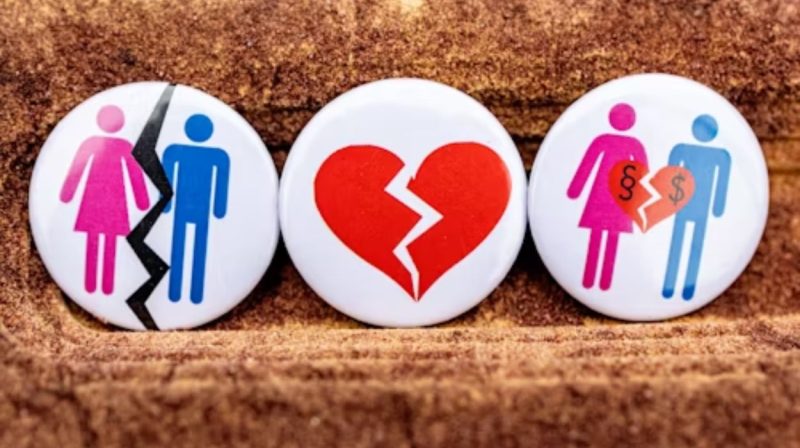
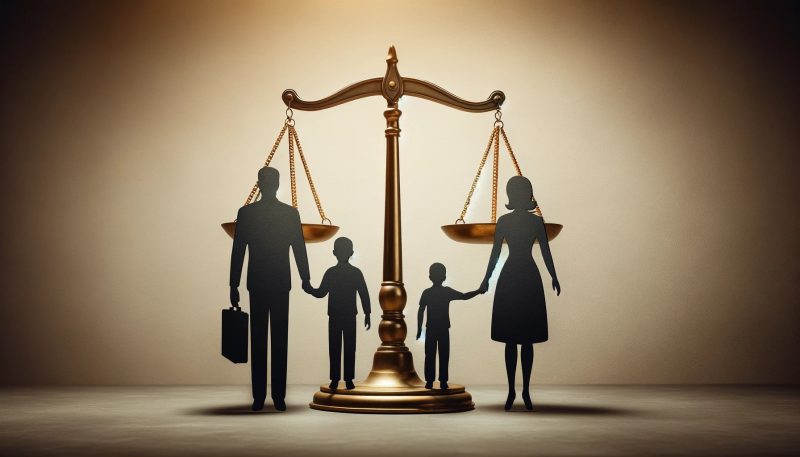
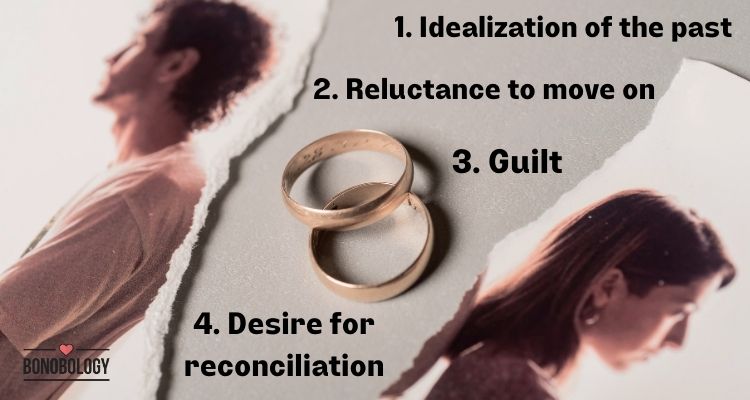

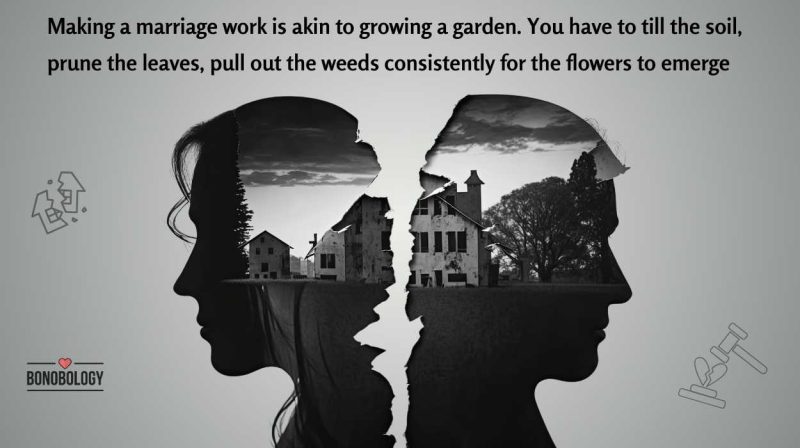

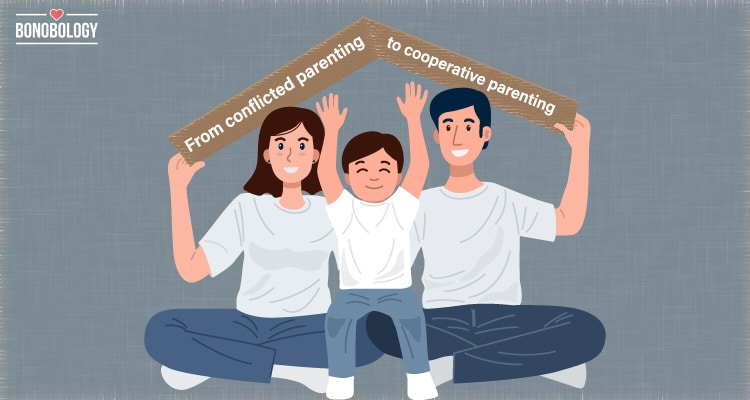

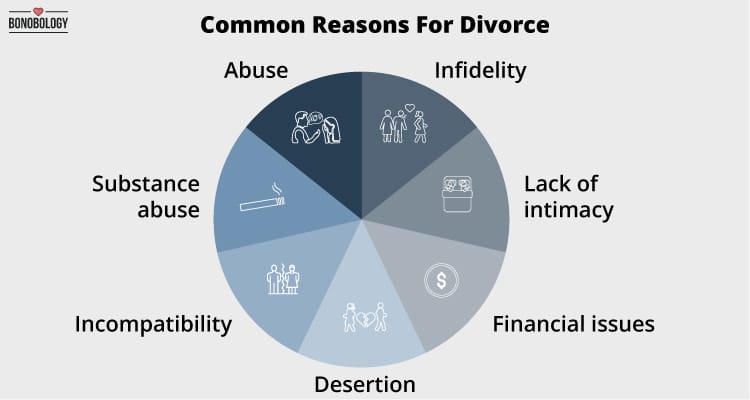



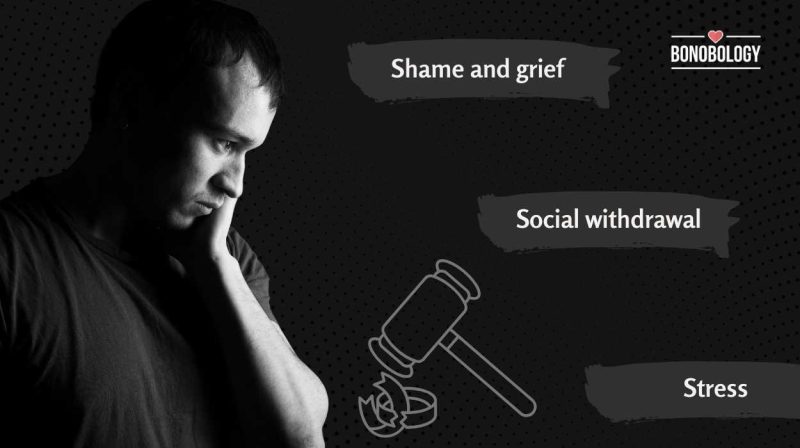
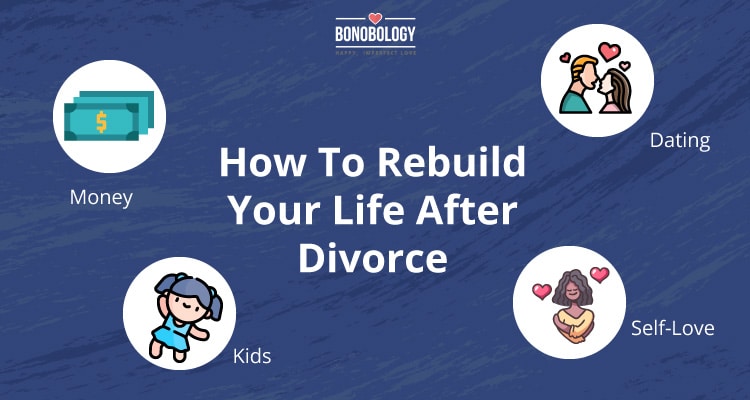
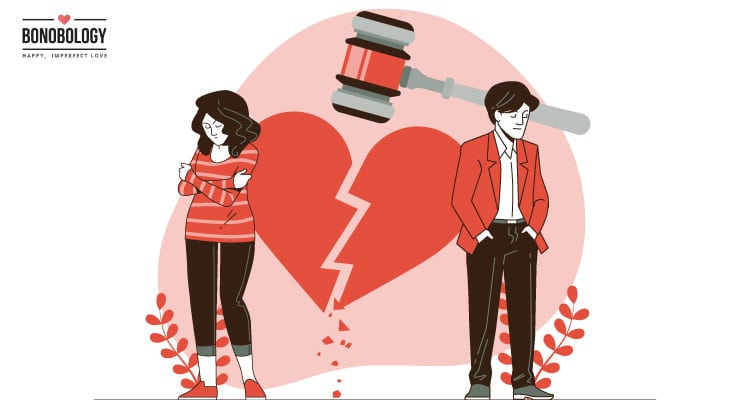


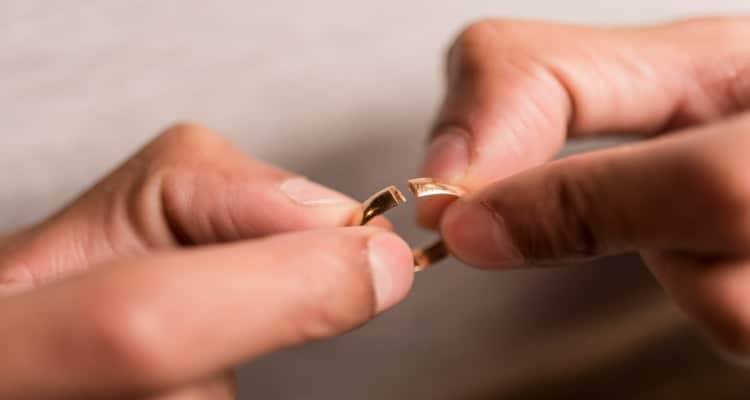


Featured
The Hidden Benefits Of Divorce
Top Legal Tactics for Alimony Disputes Between Parents
Divorce Regret: What Is It, Signs, And Ways To Deal
The Pros And Cons Of Being Your Own Divorce Lawyer
15 Subtle Yet Strong Signs Your Marriage Will End In Divorce
10 Things To Do When You Are Thinking About Divorce
10 Tips For Divorced Parents To Handle Joint Custody Effectively
9 Sneaky Divorce Tactics And Ways To Combat Them
15 Most Common Reasons For Divorce
11 Ways To Remain Sane During a Divorce
7 Important Things To Know About Dating While Separated
The Top Rules Of Separation In Marriage To Make It Successful
Lonely After Divorce: Why Men Find It So Hard To Cope
How To Rebuild Life After Divorce: Handling Kids, Money, Dating, And Self-Love
Failed Celebrity Marriages: Why Are Celebrity Divorces So Common And Expensive?
Surviving Divorce at 50: How To Rebuild Your Life
Gray Divorce 101 – A Guide To Divorce After A Long Marriage
Expert Advice – When To Call It Quits In A Marriage
8 Examples Of Unhealthy Boundaries With Ex-Wife
7 Predictors Of Divorce You Should Be Aware Of